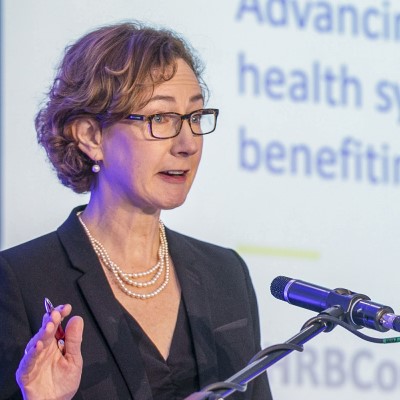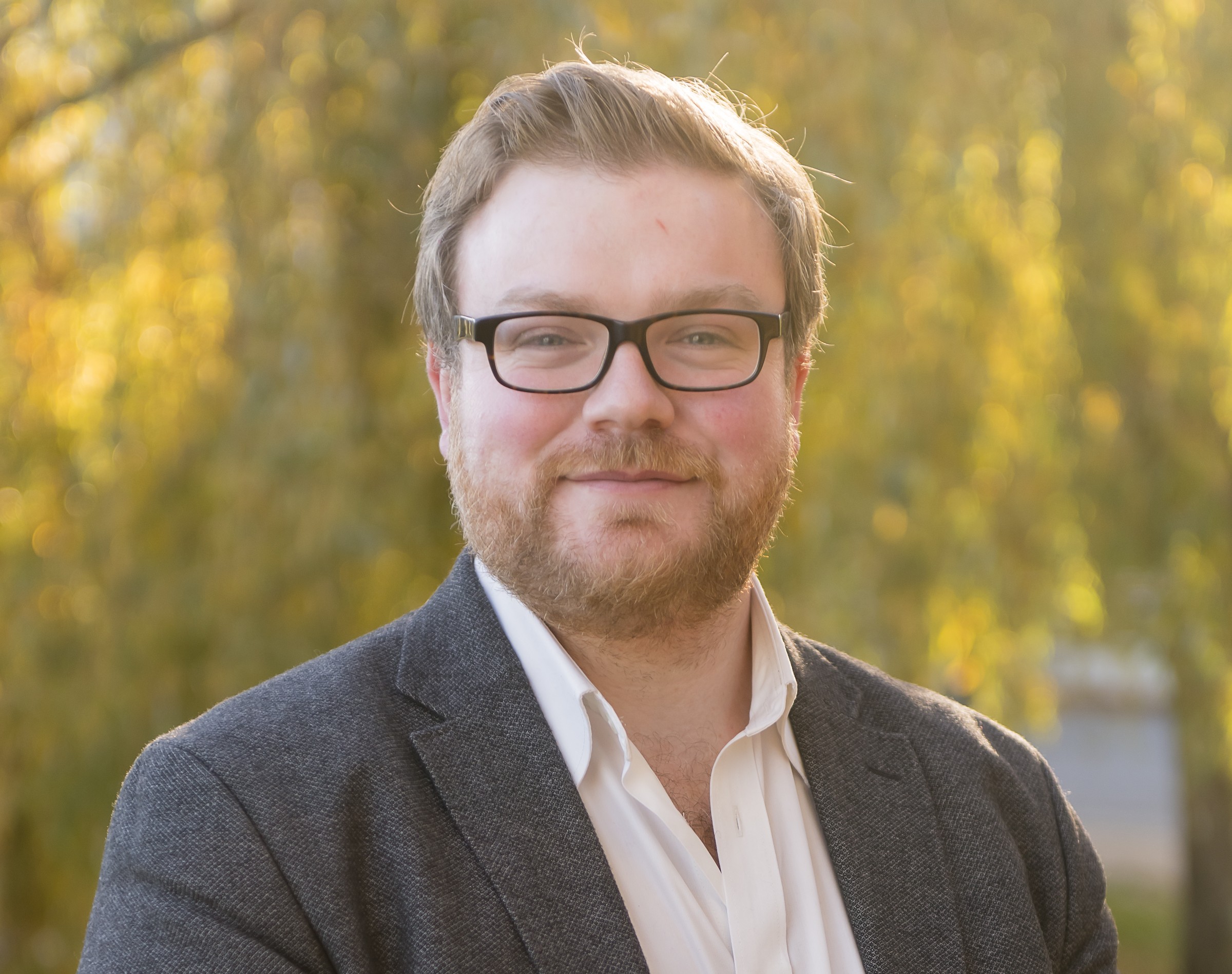Snapshots of success – the HRB Strategy to date
The HRB’s 2022 Annual Report has just been launched and we are mid-way through HRB’s strategy for 2021-2025. HRB Chief Executive Dr Mairéad O’Driscoll reflects on progress to date and the shape of things to come.
8 min read - 28 Aug 2023

When you are mid-way along a journey, it can be helpful to look back and see how far you have come.
Back in February 2021, we launched the HRB Strategy 2021-2025, Health research – making an impact, which focuses on several key areas to make a positive difference in Ireland through research in health and social care.
At the time, the Covid-19 pandemic was to the fore. At a national level, the pandemic brought into sharp focus how a public health crisis can have an enormous and lasting impact on people’s lives and on the economy. It also highlighted the very real links between evidence and policy, and the need to communicate trusted data in a timely manner.
Two main themes have shone through for me through stories out outcomes and impact in the HRB Annual Reports for 2021 and (newly published) 2022.
One is the value of investing for the long term in health and social care research in Ireland. The other is our ability to use our research infrastructure, evidence and connectivity to inform how healthcare is delivered, whether that is through a clinical trial or by using high-quality data to inform public policies and services.
One blog post cannot possibly capture the full scope of progress since 2021, but let’s look at a few of the ways in which the HRB community has been making an impact through our strategic objectives.
1. Research that makes a difference
Throughout this strategy, we are aiming for a balanced funding portfolio. The HRB has always invested in good ideas – high quality, innovative research led by talented people. But we are conscious also of the need to direct a proportion of our funding to priority areas. Ove the next two years, we will be working with the Departent of Health to co-design a research programme that responds to health and social care policy needs.
At the core of everything we do at the HRB, is the drive to make a positive difference in the health of patients and the public. For several years, the HRB has been investing in Public and Patient Involvement (PPI), and I am encouraged to see how the approach is now moving to the mainstream.
PPI is becoming embedded in the way that health research is done in Ireland, democratising research, with the public and patients now expecting to be involved. During this Strategy we are continuing to lead this fundamental shift through important initiatives such as the PPI Ignite Network.
2. An independent voice for policy
In a world where misinformation can grow wings in seconds, authentic and independent evidence is key.
The HRB Evidence Centre continues to support health policy through the provision of substantial evidence review products in important areas, ranging from improving health and outcomes in deprived communities, to the regulation of hospital pharmacy services and the role, function, and supply of home care workers.
The HRB is also building Ireland’s capacity to assess high-quality evidence around health. This includes supporting Evidence Synthesis Ireland, which is building capacity in Ireland to carry out and use high-quality reviews of evidence.
Our focus on high-quality, independent evidence ties in with the current explosion of interest in using evidence to inform health and social care policies in Ireland, and for me it is an important direction for all our futures.
3. Data you can trust
Data analysis opens up new and exciting opportunities in health and social care, but researchers need access to high-quality data to realise the potential.
Data and analysis provided by the HRB’s is enabling access to services and preventing or reducing harm from drug and alcohol use and gambling addiction. The team is also providing evidence to support the work of the Citizens’ Assembly on Drug Use.
During the pandemic, we partnered with the Department of Health and the Central Statistics Office to form the COVID-19 Data Research Hub, so that researchers could safely access COVID-19 datasets to inform their research. Resulting projects included tracking the spread of the virus and assessing the contribution of GPs to the national pandemic response.
More broadly, the HRB is supporting multiple projects on secondary data analysis. We have joined forces with the Irish Centre for High-End Computing and European partners to strengthen data access, storage and sharing. We also support the development of a new Health Information Bill and moves towards the European Data Space. These steps will strengthen Ireland’s environment for using health data and information, an ever-increasing demand for optimising healthcare delivery.
4. Thriving research environment
At the HRB we have invested in research infrastructure for more than a decade. That investment is now paying off. As an example, we have driven a huge improvement in the environment for conducting clinical trials in Ireland.
This investment is having an enormous impact on patient health. And we saw during the pandemic how the HRB-Irish Critical Care-Clinical Trials Network rapidly co-ordinated a response that led to important discoveries about how to best manage patients with severe Covid-19.
We can be rightly proud of this work, and of being involved in successful training programmes to build research expertise such as ICAT (Irish Clinical Academic Training) and SPHeRe (Structured Population Health, Policy and Health-services Research Education).
There remains plenty more to do in the span of this strategy. One area that stands out for me is research ethics. The HRB hosts the National Office for Research Ethics Committees which is leading the transformation of the research ethics system in Ireland – the theme of our upcoming annual conference in 2023.
And as Sláintecare takes shape and reforms healthcare in in Ireland, we need to continue to enrich the research environment and ensure that it is embedded in healthcare systems.
5. Productive international partnerships
Healthcare challenges are often global, and while we focus on strengthening health and social care in Ireland, to really tackle big challenges and thrive, we need to work with international partners.
The HRB has long had strong links with other European organisations. We support the involvement of researchers in Ireland in the Horizon Europe programme, and we work with researchers and policymakers to participate in European networks in key areas such as personalised medicine, anti-microbial resistance and rare diseases.
To support Genomic Data Infrastructure in Ireland, we announced in 2022 that the HRB is co-funding Irish participation in European infrastructure for genomics data under the Digital Europe Programme. This will cement Ireland’s inclusion in a cross-border federated network of national genome and data collections, a vital component of data-driven personalised medicine.
6. Organisational excellence
As Ireland’s leading health-research funding agency, we want the HRB to be a progressive place to work, and one that promotes engagement, access and flexibility. We have increased our online presence, strengthened our electronic records and run numerous events with stakeholders. Against the backdrop of the pandemic, we have also successfully managed remote working and the return to the office.
And since the lockdown restrictions eased, it has been a joy to run several in-person conferences for our community and stakeholders, where we can connect and explore key areas such as personalised medicine
Future gains
The second half of the HRB Strategy’s time-span to 2025 is set to be an exciting time of change.
As awareness grows of the need to put evidence at the centre of decision making, the spotlight is cast on the relationship between the production of that evidence and its use. We will gain a deeper understanding of that complexity from a HRB project to map the evidence ecosystem in Ireland. And more broadly, the research landscape in Ireland will have a new research-funding body in early 2024. This offers a great opportunity to re-shape the research system, bringing much needed coordination to the whole system while continuing to support sectoral specific research in areas such as health.
Apart from highlighting the importance of public health and social care, the pandemic shone a light on some of our shortcomings. I hope we will work with other agencies to address some of the gaps that were evident, especially our capacity in public health research. And for all the investments that we have made, some areas are under served. As we move to the next stage of our strategy, we will tun our attention to health inclusion, addressing the very real inequalities that persist despite the gains most of us enjoy.
Making these impacts will need a co-ordinated approach. You can achieve a lot working in your own space, but step changes happen when people work together, that is where the wins are.
8 min read - 28 Aug 2023



